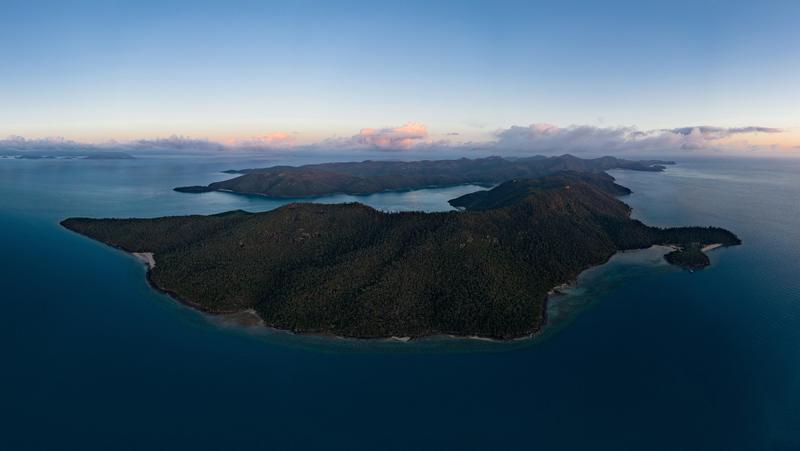Hook Island, part of Australia's Whitsunday Islands, has unveiled plans for an eco-lodge. Expected to open in 2027, the destination will "set a new standard for sustainable luxury travel in Australia." Epochal Hotels’ CEO Glenn Piper, alongside a small group of dedicated investors, acquired the leasehold in 2022 with the vision of restoring this area, which was left severely impacted by cyclones.
Now, the island’s nearly 23 acres are poised for a revival. With design led by Luxury Frontiers, the eco-lodge will be home to 39 biophilic cabins, two dining experiences, forest eco pools, wellness spaces and a range of adventure activities.
Six types of accommodation will be spread across forest and beachfront settings, each with its own distinctive interior design. Key amenities will include:
- Arrival Pavilion – Welcoming guests to the island with architectural lines that reflect Hook Island’s natural beauty
- Explorer’s Lounge – A storytelling hub capturing Hook Island’s history
- Beach Club – A social center with an all-day dining restaurant, bar, outdoor fire pit, pool and lounging deck overlooking Hook Passage
- Nordic Cycle Forest Spa and Eco Pool – A tranquil, forest-inspired retreat for relaxation
- Clifftop Fine-Dining Restaurant – The outlet will showcase local produce and offer views of Stingray Bay
- Lounge, Yoga Pavilion and Kids Adventure Club – Family-friendly spaces designed to encourage exploration and relaxation for all ages; nature play will be encouraged for young guests, fostering a love for the outdoors and respect for the island’s environment

Spanning over 22 square miles, Hook Island lies between the Queensland coast and the Great Barrier Reef and is home to forests, beaches and diverse ecosystems. In keeping with their commitment to conservation, Piper and his team are working closely with leading consultants to ensure the development aligns with the island’s ecological needs. To that point, cyclone-resistant, modular architecture will blend with the island’s natural contours, while extensive tree surveys have guided building placements to preserve native plants and habitats, further reinforcing the island's character.
Development will take a phased approach to minimize its footprint, with comprehensive measures in place to prevent erosion, manage waste and reduce noise pollution. Daily operations will emphasize water-efficient systems, recycled wastewater irrigation and eco-friendly appliances to sustain resources.
More details will be announced as the project nears completion.
Related Articles
Iconic Backpacker New Zealand Haunt Converted Into Luxe Retreat
Kaikōura: New Zealand’s Latest International Dark Sky Sanctuary